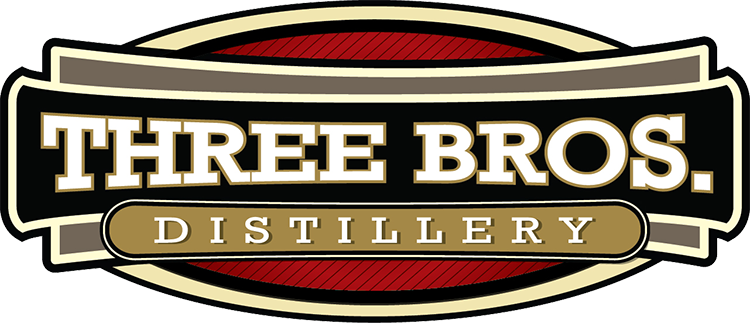Local man tackles distillery, plans to start bottling in 12 to 18 months in Sussex County
Originally Posted: May 31, 2013 at www.insidebiz.com
By Lydia Wheeler
David Reavis is tired of drinking bad whiskey.
So, to please his palate, the Chesapeake resident is working to open his own distillery on a friend’s farm – The Cheerful Chicken Farm – in Sussex County.
The oldest of three brothers, he named the business The Three Brothers’ Whiskey Distillery and plans to make craft rye whiskey, gin and unaged corn liquor.
“Big manufacturers most often sell by volume, not to say their products are terrible, but they aren’t great,” Reavis said. “I know I can make it better because I can make it in small batches.”
Since graduating with an associate’s degree in science from Tidewater Community College last year, Reavis, a retired Navy first-class electronics technician, is working toward a biology degree from Old Dominion University. But before he can obtain the necessary permits and licensing to join the craft craze, he has to wait for Sussex County to approve conditional zoning to allow distilling on the property – located at 9935 County Line Road, Disputanta – on the boarder of Prince George and Sussex counties.
“There’s quite the growing craft movement,” said Tom Hogue, a spokesman for the federal Alcohol and Tobacco Tax and Trade Bureau. “There has been a steady rise in applications for permits in all three segments of alcohol – distilled spirits, wine and beer.”
Craft distilleries in the United States more than doubled in four years. In 2012 there were 470 licensed craft distilleries compared to 210 in 2008, according to the bureau, which is part of the U.S. Department of the Treasury.
If zoning is approved, Reavis then has to obtain a distilled spirits permit from the bureau, which is free, and a distillery license through the Virginia Department of Alcohol Beverage Control, which costs $450 annually to produce less than 5,000 gallons a year, before he can begin marketing to Hampton Roads.
He is aiming to begin production by October, but other distillers in the marketplace say his goal may be a bit ambitious.
Chris Richeson said it took him over a year to open Chesapeake Bay Distillery, one of two distilleries in Hampton Roads, located in Virginia Beach.
“I think we started in October 2005,” he said. “The first permit you need is the distilled spirits permit from the TTB and before you apply you have to have a fully operational plant.”
Currently, the bureau is averaging 81 days to process online applications.
“You have to keep in mind that there are quite a few things that go into determining whether to issue a permit,” Hogue said. “Every application is viewed individually and how long it takes is based on how complete the application is when you turn it in.”
Approval or denial is based on the business’s equipment, funding and history of compliance. Though the state process is faster, Richeson said you have to convince the state, which chooses what bottles of alcohol to carry in its ABC stores, that the customer wants your product.
“They look at 300 to 400 bottles and they are going accept less than 100,” Richeson said.
Distillers can market to mixed- beverage licensed restaurants by offering tastings, but the process is costly.
“If you break even on bars and restaurants, you’re doing good,” Richeson said. “It’s not easy.”
Chesapeake Bay Distillery’s Blue Ridge Vodka and Chick’s Beach Rum are in Virginia ABC stores and in liquor stores in six other states including New York, Washington, D.C., Maryland, Delaware, Tennessee, North Carolina and South Carolina.
To open, it cost Richeson hundreds of thousands of dollars. It then took him four to five years to start turning a profit.
“We tried to limit our expenses to grow slowly, so we could afford it and we’ve been fairly successful,” he said. “You have to go in knowing it’s not going to be an overnight smash success.”
Like Chesapeake Bay, Three Brothers’ Whiskey plans to begin manufacturing part-time, producing 240 gallons of proof alcohol a month with the used 60-gallon production still Reavis has arranged to buy for $15,000. A proof gallon is one liquid gallon of spirits that is 50 percent alcohol at 60 F, according to TTB’s website.
“This translates to 850 bottles of our unaged corn whiskey for immediate sale and 140 gallons of rye whiskey being aged in barrels,” he said. “I expect to be able to start bottling the rye in 12 to 18 months depending on the aging process in the local conditions.”
A 300-gallon production still, however, would allow Reavis to manufacture full-time and produce up to 2,400 gallons of proof alcohol a month.
Through Indigogo.com, a crowd-sourcing website, he has raised $827 of the $100,000 needed to buy the new, larger still. An addition $50,000 from personal savings and private investments will get the distillery open for a total initial investment of $150,000.
0Hey, like this post? Why not share it with a buddy?
TweetLeave a Reply
You must be logged in to post a comment.

